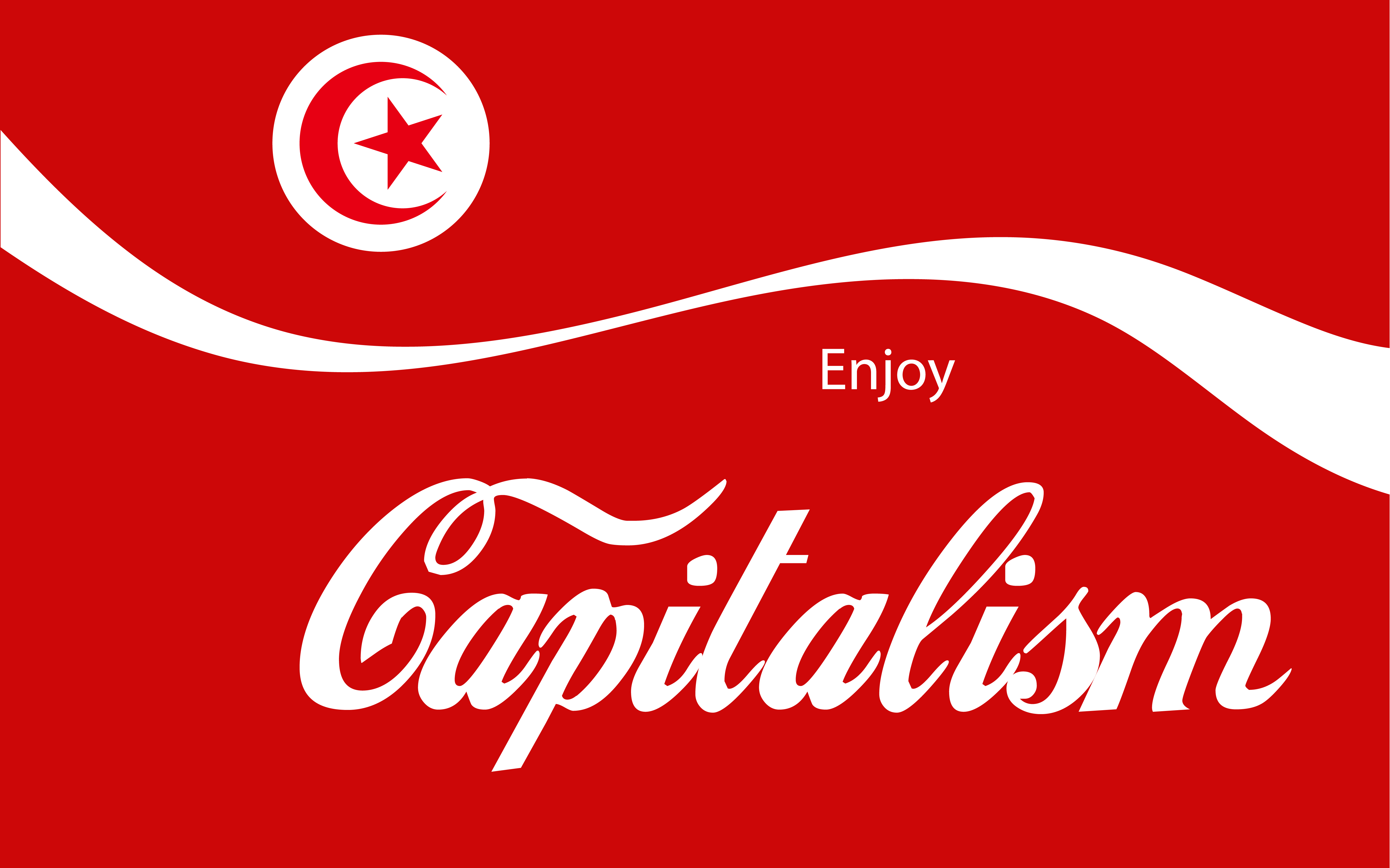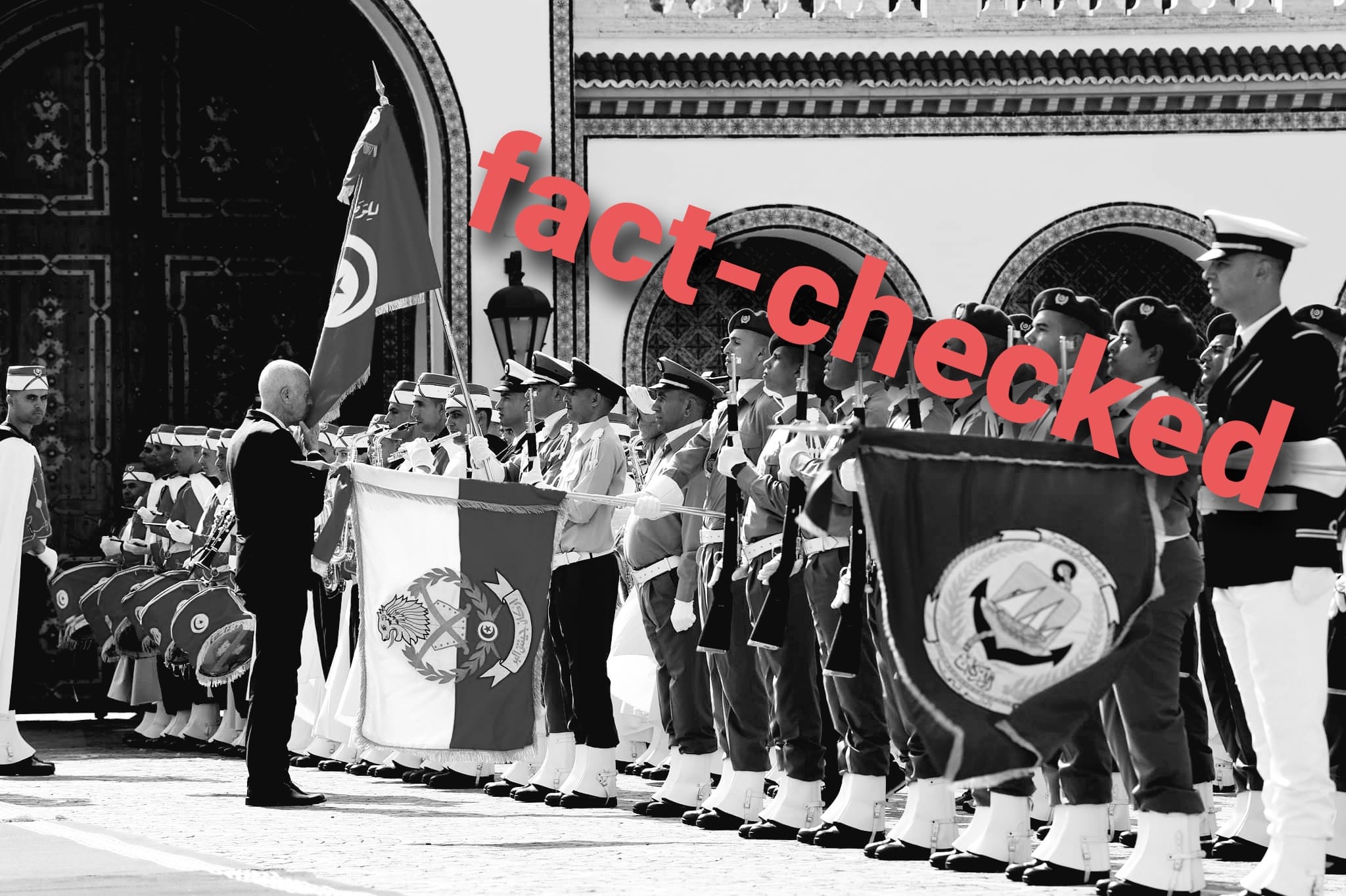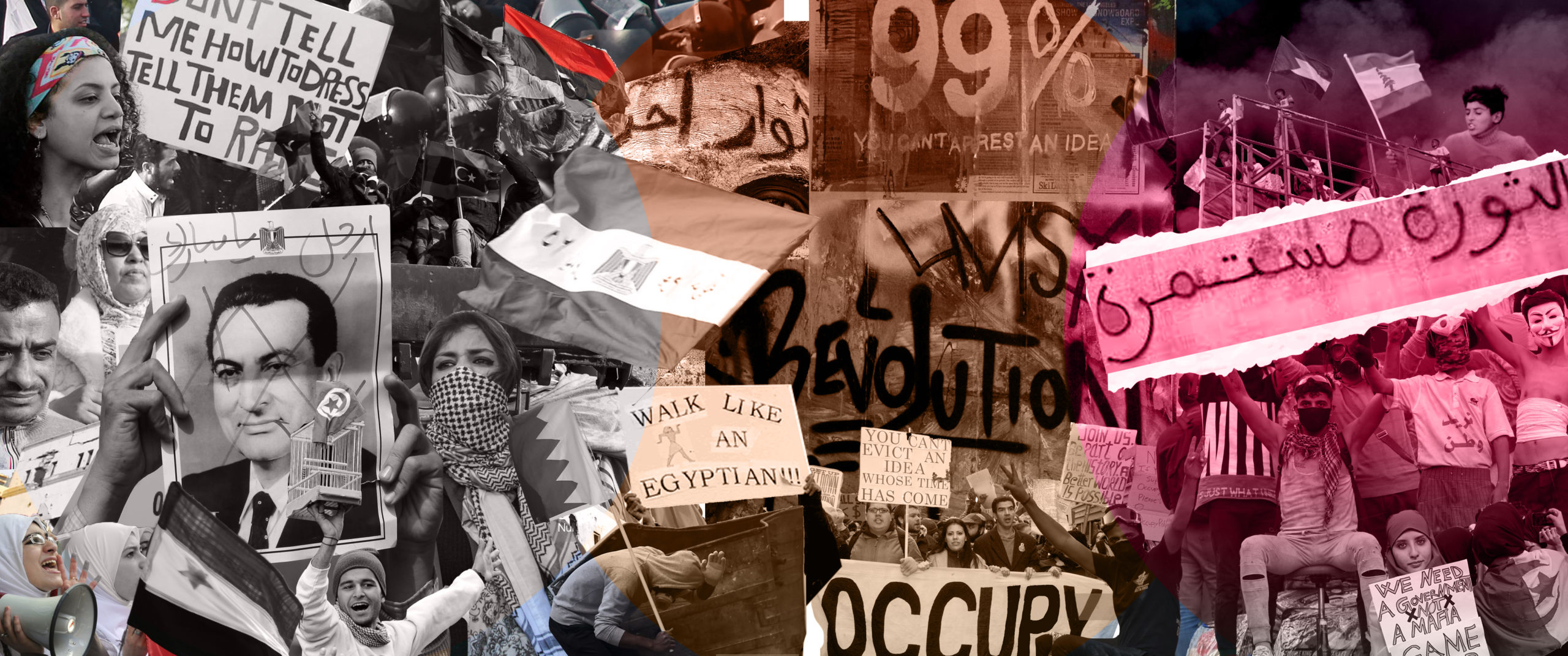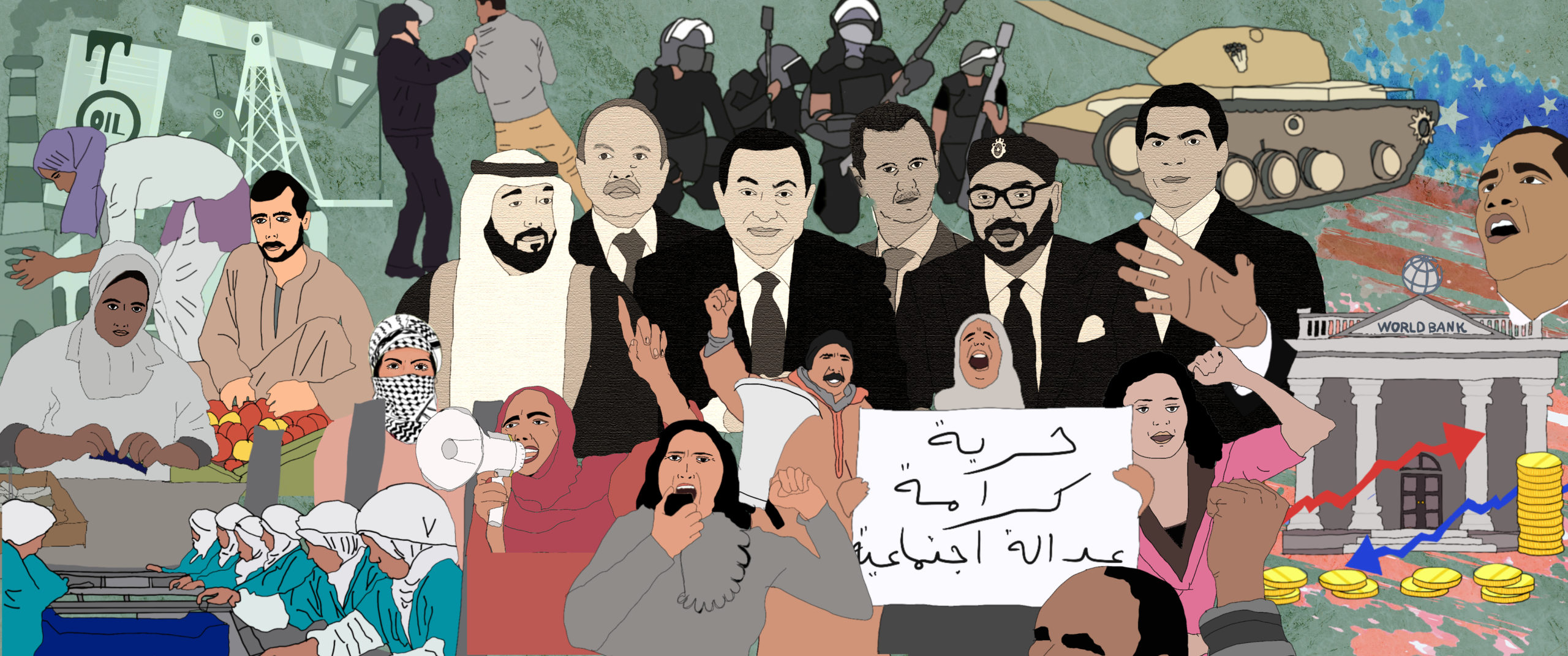Unsurprisingly, Tunisia is facing an unprecedented health and economic crisis amid the covid19 outbreak. The newly elected government headed by Elyes Fakhfakh decided on March 22nd to impose an early general lockdown on the country to contain the spread of the virus. 1.5 million Tunisian workers continued to work during the pandemic while more than 10 million citizens were confined at home. Two months after the general lockdown, although Tunisia proudly succeeded -until now- in flattening the curve of the covid19 outbreak to a manageable level with regard to the country’s healthcare capacity[1], it took insufficient measures to ensure the well-being of the most vulnerable: marginalized populations, and very precarious workers- be it in formal or informal economic sectors – and to avoid mass unemployment amidst what is expected to be the deepest economic recession since Tunisia’s independence.
The Fakhfakh government announced a fundraising hotline to collect donations for the national health system and revealed the reorganizing of budget spending priorities in order to reallocate an overall amount of 2,500 billion TND ($860 million) to support small and medium enterprises (SME) and companies suffering from the economic shutdown. The government also agreed to transfer 200 TND ($68) as a social safety net to the 600,000 poorest families for the month of April. So far, an additional 1.4 million Tunisians requested this aid, and the number of applications for emergency cash assistance is expected to rise. The government extended this monthly allocation to May as the targeted lockdown was extended. Other emergency policies include mortgage and loan freeze for middle-income households, a freeze of social contributions from the private sector from three to six months, and a reduction by the central bank of the interest rate by 100 basis points in order to preserve the demand side. However, these measures were generally perceived as insufficient especially with attempts of banks and companies to violate the imposed measures and the agreement with the government to maintain salary payments for workers forced into confinement. Therefore, a great discontent emerged between different classes (workers and business owners), between the private and public sector, and between different unions due to the general belief that some will pay more for the others[2].
This feeling of injustice is not unfounded as social and fiscal injustice have persisted during decades of economic and fiscal policies guided by austerity measures imposed by international financial institutions (IFIs) and donor countries, and even more so after the 2011 revolution. As a result, workers’ rights have been undermined and their struggles criminalized[3].
This situation is exacerbated by the government officials’ belief that guaranteeing salary payments in Tunisian Dinar, social transfers to the poorest, and doing “Whatever it takes” to preserve jobs and income for workers and households, can only be done through taxation, or new debts or by collecting donations, or through threatening the rentiers capitalist class by a hypothetical wealth tax measure.
While Tunisia is a currency issuer state and is not fiscally constrained, the Central Bank of Tunisia (CBT) could have accommodated the government’s plan to stabilize the income of the most vulnerable people without fearing inflation, especially in this context of international trade contraction, instead of allowing banks and the financial sector to take advantage of this crisis by seeking more profits, from high-interest rate lending to the state, and by investing public money in non-productive sectors.
This is a political decision that could have been made by the Chief of Government when legislative power was delegated to him at the end of March, but unfortunately such a proposal –of allowing the CBT to accommodate government deficit limited to 5% of GDP- was strangely deleted from the last version of the delegation law.
A new loan with new conditions
Regrettably, the government made another political decision to prioritize external debt servicing and to acquire even more external debt. Indeed, on the 14th of April, Tunisia and the IMF announced an agreement for the disbursement of a new loan: The Rapid Financing Instrument (RFI) worth $745 million – the second-biggest disbursement by an African country after Côte d’Ivoire – to support “the government’s efforts to contain the pandemic.”
Taking a closer look at the letter of intent[4] jointly signed and sent by the finance minister and the central bank governor, we find that the loan is conditional, despite the government claiming otherwise. In fact, there are immediate and future commitments that predicate the continuation of the same dependency policies that may jeopardize any attempt by Tunisia to create a more resilient and sovereign economic model.
Indeed, the immediate commitment consists of a reduction of investment in non-priority projects without any clear definition of such projects. The announced budget cuts included the canceling the procurement of cars for government officials, flours and roses for the presidential palace, but most impactful, the reduction of fuel subsidies[5], the increase in the price of tobacco, the increase in water distribution cost, and the freezing of subsidized fuel and food vouchers for public servants. Already one day of work was cut from workers’ payroll in the private and public sector as a compulsory contribution to the government’s efforts to “collect” funds, this one-day salary cut included healthcare workers and workers in essential and strategic sectors who continued to serve during the pandemic. Farmers also contributed with 1% of their turnover on the wholesale markets, while banks, financial institutions, and large profitable corporations were left free to contribute to the donations fund voluntarily based on their goodwill.
All of these measures will have a negative impact on the income of the vast majority of the marginalized people, unemployed, low wage workers, but also the middle class, which is mostly composed of public employees, while the capitalist class continues to enjoy the special fiscal status that provides them with tax cuts, especially for companies whose activity is 100% export-oriented.
The government also committed to increasing natural gas prices after the Covid-19 crisis eases. Authorities will put a strain on its workforce by freezing promotions and limiting overtime hours in the public sector to prevent any new wage bill surge for 2020. The government is also negotiating with the Tunisian General Labor Union (UGTT) so that any planned salary increases for 2021 will not exceed the inflation rate. In addition, an audit of the public sector will be performed to reduce absenteeism and ‘ghost’ workers. This may announce hard bargaining times between the government and the national union as the weight of the crisis will mainly be borne by labor, not capital. The UGTT played a major role during the last round of IMF negotiations to push back against reforms that were mainly targeting public sector privatization, wage cuts and a reduction in the number of public sector employees working in local administrations, and strategic sectors like water, energy, transport, education, and health.
As for the limited participation of private banks and financial institutions in the national effort to support SMEs and households, and the non-compliance of some banks to the CBT’s decisions to freezing loan payments, the Ministry of Finance, Nizar Yaïche, reiterated the holy principle of CBT independence. This principle, included in the new statute of the CBT, was also imposed by the 2016 loan agreement with the IMF whose main objective was to prohibit the CBT from directly financing government deficits via treasury bond purchases and to maintain legal independence in policymaking from the central government, even though most of CBT policies are guided by the IMF staff priorities and in agreement with their recommendations.
Although central banks of advanced economies have undertaken massive if not unlimited liquidity injections, to support their economies and support workers whose livelihoods have been adversely affected, this option has been denied for Tunisia. The IMF had the Central Bank of Tunisia commit to not interfering in the foreign exchange market, or limiting foreign transfers (dividends, debt repayments), trade transactions, or entering into bilateral payment arrangements with other countries. Moreover, the IMF imposed that any loan guarantees or subsidies to companies should be borne by the government rather than the Central Bank. With these prescriptions, the IMF clearly plays the role of a self-appointed watchdog of global capitalism. What worries the IMF is the leeway that countries like Tunisia could leverage with their sovereign currency, should their central bank unleash more robust counter-inflationist policies and national rights-based economic stimulus targeting full employment and rebuilding local productive capacity. That is why policing central banks have always been central to the IMF conditionalities.
As for future commitments, the government is planning to permanently reduce subsidies for electricity and natural gas, and to make social safety nets are offered on a temporary rather than permanent basis. This is part of the general neoliberal orientation maintained by the IMF to cancel governmental subsidies as they are considered distortions to market equilibrium. These reforms may certainly apply later to the few products that are still subsidized in Tunisia, namely wheat and semolina flour, sugar, vegetal oils, milk, and tomato paste (the latter are price-settled), all of which are really important food staples for Tunisian consumers, as shown during the COVID-19 crisis. Price-subsidized basic products are a sensitive issue for most Tunisians since the monthly minimum wage for a Tunisian worker is only 403 TND ($140 per month) for 48 hours/week. For a long time, subsidizing basic commodities was a necessary strategic decision for governments to maintain social peace in an economic environment of a race to the bottom wage policies.
Last but not least, to obtain this RFI disbursement, the Tunisian government committed to starting a new IMF program (Extended Fund Facility) in the third quarter of 2020, which will also include a number of painful reforms, as Nizar Yaïche, the Finance Minister stated in his recent interview with Bloomberg News.
While this Covid-19 pandemic allowed debt servicing relief for 25 African countries, Tunisia was excluded from this debt relief program announced by the G20. On the contrary, the new IMF loan is expected to be a lever to other loans from the G7 and international financial markets. The European Commission also announced a new Macro-Financial Assistance (MFA) of €600 million that will help fill the gap of debt servicing tranches which will be due in 2020 and 2021. These MFAs, like former ones that “benefited” Tunisia, were also a European Commission tool to secure its trade-related interests.
It must be noted that the amount allocated to debt servicing in the government’s budget exceeds 11 billion TND ($3,78 billion) for 2020, which is one-quarter of the government’s budget, more than six times the budget allocated for the ministry of higher education and scientific research, 35 times the investment allocation for education, and five times the budget of the ministry of health[6]. In 2019, more than 4,000 health workers left public health services and were not replaced.
This deal with the IMF is, in reality, imposing an unwarranted burden on government spending, and as a consequence, will tighten the government’s fiscal policy space which would hinder the prioritizing of health, education, universal public services for its population. However, more deceivingly, this deal is making it less likely for Tunisia to launch any new green infrastructure and a job guarantee program[7] that may act as a stimulus and a stabilizer of economic activity; which could, in turn, protect people’s lives and dignity, especially if the central bank continues its high-interest rate policy focus, and ignores its role in financing the budget deficit or supporting any national rights-based recovery program.
The recent decision of the G20 to relieve some financial constraints on the poorest countries that are liable to find themselves in default is only aiming to avoid an imminent ‘sovereign debt default domino effect’ without addressing the structural deficiencies of developing countries or addressing the root causes of their balance of payment (BoP) deficits[8]. At the same time, they would approve new concessional loans to countries with fewer financial difficulties, well-controlled markets (like Tunisia), and continue making these loans conditional based upon limiting government spending and deficits, excluding the central bank as an important policy tool, and making sure there are no capital controls or constraints on trade. This strategy maintains the dependency relationship with creditor countries who need market access in developing countries where they can sell high value-added products, and where they can buy cheap factors of production and resources at stable and affordable prices.
Is this strategy sustainable?
One might, however, wonder to what extent and under which circumstances can this strategy be sustainable. The answer may be found in the blog post[9] of the IMF managing director Kristalina Georgieva who stated “But more lending may not always be the best solution for every country. The crisis is adding to high debt burdens and many could find themselves on an unsustainable path. We, therefore, need to contemplate new approaches, working closely with other international institutions, as well as the private sector, to help countries steer through this crisis and emerge more resilient.”
In reality, “supporting the government’s efforts to contain the pandemic”, could be understood in IMF’s terms as directing the government’s efforts to secure private and multilateral debt servicing, international trade, capital transfers for international investors and opening the door to more lucrative, speculative, rentier profit-making private investments, through private-public partnerships in strategic sectors, further commodification of public goods, and greenwashing that will ultimately lead to more capital accumulation.
To make it clear, the imperialist countries controlling these multilateral institutions (like the IMF, the World Bank, the WTO, ..) are desperately trying to maintain their dominance and the privileged status of their currencies in an increasingly multi polarized world for the benefit of the financialized transnational capitalist classes.[10]
Nevertheless, one hope still persists for most Tunisians: that the revolution of dignity achieves two out of three objectives for which people died, jobs and dignity.
If there is something to learn from this pandemic, it is that today more than ever, a job guarantee program is needed: namely, a green economic program supported by the government, the central bank, and public banks, and in cooperation with the private sector (subject to workers’ rights and environmental protection), managed locally, relying on the real resources and productive capacity of the country, and addressing the real needs of its population, respectful of its climate specificities and water scarcity. Guaranteeing jobs in sustainable agriculture – aiming at ensuring food sovereignty, safe and affordable food – jobs in green infrastructure, using solar, wind and hydroelectric energy to end the fossil fuel economy, and investing in the high value-added industry, in healthcare, childcare, eldercare, education, culture, community building, R&D, and in the local pharmaceutical industry to delink the dependence on big pharma’s speculation on people’s health.
Jobs, decent wages, and bold social rights to restore economic sovereignty and a healthy environment are now necessary for Tunisia’s post-covid-19 recovery. This is the only way for the government to address the root causes of the balance of payment structural deficiencies and the only political ground for the progressive movements’ struggle to end decades of economic dependency. Recent initiatives from Tunisian women and men, engineers, unemployed, students, researchers, practitioners, textile workers, farmers, and civil society during the Covid-19 pandemic to develop solidary local, innovative and autonomous solutions to save our lives are proof that a sovereign, prosperous, and sustainable Tunisia is not an impossible reality, but is rather within reach.
[1] By End of May the number of total cases counted to 1,084 cases, and 48 deaths, which makes Tunisia one of the few successful countries in managing the pandemic.
[2] https://orientxxi.info/magazine/tunisie-qui-paie-le-prix-du-coronavirus,3784?fbclid=IwAR0bx85c0zHiY0Hf1NnTsw_ALPXmFnR4N1dKxHNaljiQNyN5mRyQ3Rj8Uq0
[3] See https://rosaluxna.org/wp-content/uploads/2020/02/What-Democracy-for-Tunisian-Workers.pdf
[4] https://www.imf.org/~/media/Files/Publications/CR/2020/English/1TUNEA2020001.ashx
[5] While international fuel prices were collapsing, the internal market prices were very slightly declining, in reality, the consumer is paying an internal price per liter higher than the international price, which makes the consumer subsidizing the government’s loss from falling quantities and not the way around.
[6] http://www.finances.gov.tn/sites/default/files/2020-02/Loi_finances_2020_fr.pdf
[7] To learn more about Job Guarantee program for developing countries, African economic and monetary sovereignty, colonialism and independence see the work of Fadhel Kaboub and Ndongo Samba Sylla
https://www.youtube.com/watch?v=HctT4HjgChY
https://www.youtube.com/watch?v=xD6mUDRwZ7k
[8] Ndongo Samba Sylla explains here how Senegal and other non-monetarily sovereign African countries are trapped in a permanent external debt cycle https://www.rosalux.de/en/news/id/42302/how-foreign-debt-undermines-sovereignty?cHash=71f2e5caaec2a503268898ea98b7db2a
[9] https://blogs.imf.org/2020/04/20/a-global-crisis-like-no-other-needs-a-global-response-like-no-other/
[10] For more information on the Bretton Woods institutions’ response to covid-19 crisis, see the biannual analysis of the World Bank and IMF Spring and Annual Meetings of the Bretton Woods project : https://www.brettonwoodsproject.org/2020/04/spring-meetings-amid-covid-19/
See also the works of Radhika Desai on Geopolitical Economy, and multipolarity and her more recent commentaries on WHAT IS TO BE DONE? A MANIFESTO FOR POLITICS AMID THE PANDEMIC AND BEYOND https://canadiandimension.com/articles/view/political-hope-rises





